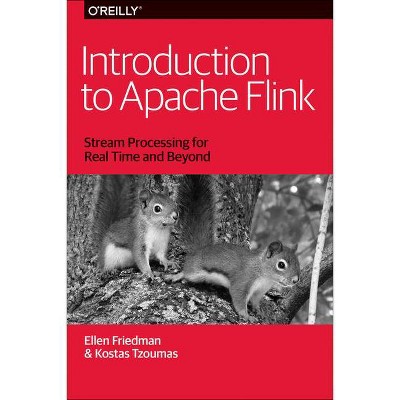Self-Organising Multi-Agent Systems: Algorithmic Foundations of Cyber-Anarcho-Socialism - by Jeremy Pitt (Hardcover)

Similar Products
Products of same category from the store
AllProduct info
<p/><br></br><p><b> About the Book </b></p></br></br>What is the secret of successful collective action that enables communities to maintain common-pool resources, withstand disasters and make effective decisions? How can this secret be reproduced in algorithmic form and so enable intelligent software processes (agents) to cooperate, collaborate and coordinate? The paradigm of self-organisation has often been observed in the natural sciences and is one of the foundations of sustainable common-pool resource management in economic science and democratic governance in political science. Self-Organising Multi-Agent Systems presents an innovative and systematic approach to transforming theories of economics and politics (and philosophy, psychology, and jurisprudence) into formal specifications of conventional rules. It shows how sets of such rules, called institutions, provide an algorithmic basis for designing and implementing self-organising multi-agent systems for successful collective action in cyber-physical and socio-technical systems. This interdisciplinary book is essential reading for anyone interested in the planned emergence of global properties or commonly-shared values as a product of social construction, knowledge management and political arrangements. Valuable for those studying both computer and social sciences, this book is a gateway to a better understanding of complex system development and social system analysis and an invitation to make the Digital Society better.<p/><br></br><p><b> Book Synopsis </b></p></br></br>The paradigm of self-organisation is fundamental to theories of collective action in economic science and democratic governance in political science. Self-organisation in these social systems critically depends on voluntary compliance with conventional rules: that is, rules which are made up, mutually agreed, and modifiable 'on the fly'. How, then, can we use the self-organisation observed in such social systems as an inspiration for decentralised computer systems, which can face similar problems of coordination, cooperation and collaboration between autonomous peers?Self-Organising Multi-Agent Systems presents an innovative and systematic approach to transforming theories of economics and politics (and elements of philosophy, psychology, and jurisprudence) into an executable logical specification of conventional rules. It shows how sets of such rules, called institutions, provide an algorithmic basis for designing and implementing cyber-physical systems, enabling intelligent software processes (called agents) to manage themselves in the face of competition for scarce resources. It also provides a basis for implementing socio-technical systems with interacting human and computational intelligences in a way that is sustainable, fair and legitimate.This interdisciplinary book is essential reading for anyone interested in the 'planned emergence' of global properties, commonly-shared values or successful collective action, especially as a product of social construction, knowledge management and political arrangements. For those studying both computer science and social sciences, this book offers a radically new gateway to a transformative understanding of complex system development and social system modelling.Understanding how a computational representation of qualitative values like justice and democracy can lead to stability and legitimacy of socio-technical systems is among the most pressing software engineering challenges of modern times. This book can be read as an invitation to make the Digital Society better.Related Link(s)
Price History
Price Archive shows prices from various stores, lets you see history and find the cheapest. There is no actual sale on the website. For all support, inquiry and suggestion messagescommunication@pricearchive.us




















